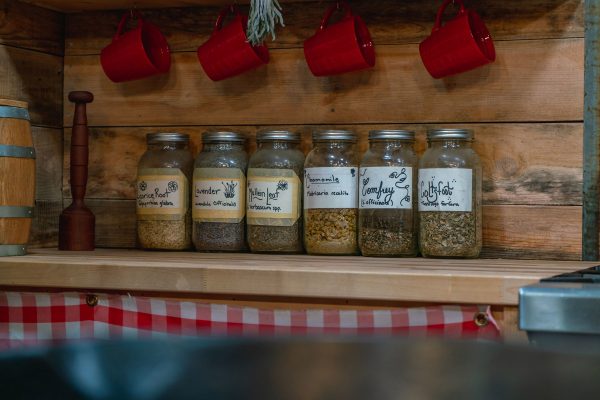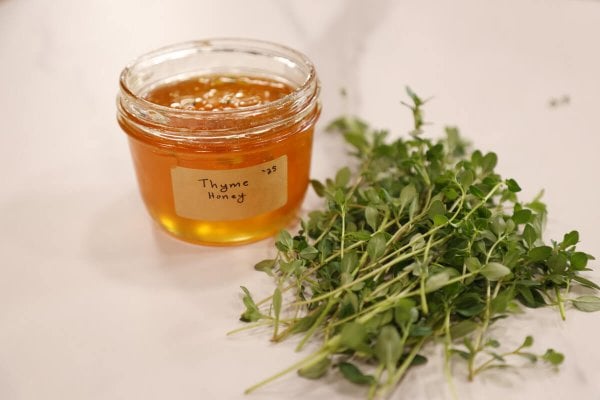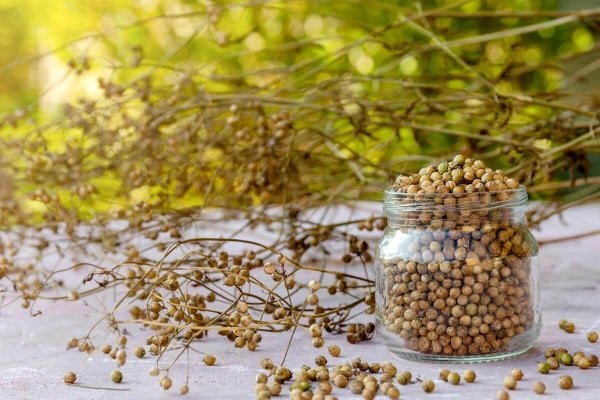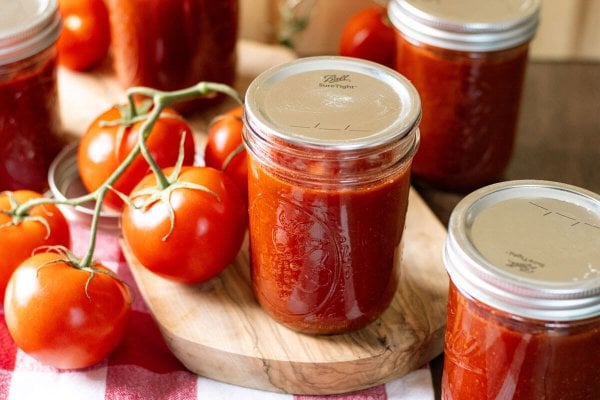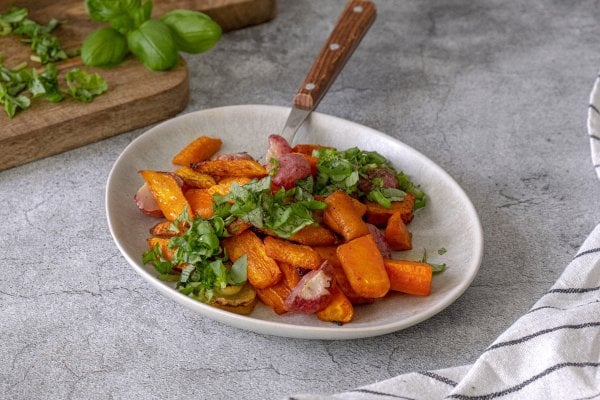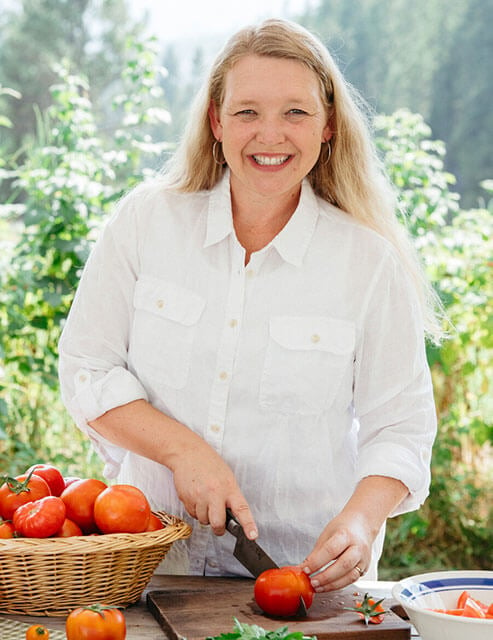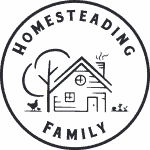
Are you feeling tired of the rat race? Thinking about making a lifestyle change? You may ask, What is Homesteading? What skills do I need to live that lifestyle and be a self-sufficient homesteader?

Learning basic homesteading skills as a sustainable way of living is within your reach. Get started where you are, with what you have in urban or rural areas. These helpful steps will get you started.
Why We Love Homesteading
Homesteading is a way of life that we have fully embraced as a family. It’s been 18 years, and we have learned so much and enjoy sharing with others our homesteading journey.
The questions we had about how to get started homesteading, how to buy a homestead property and finance our homestead while learning to homestead on a budget, and organizing our properties’ permaculture zones became a priority, and planning was key.
We had some skill sets and were willing to learn through trial and error and hard work to make our dream come true. The freedom and ingenuity it took to increase self sufficiency had its learning curves, but the skills we learned have been valuable.
We are often asked what homesteading skills are needed to start homesteading.
The good news is that before you learn tips for moving to a rural area, being prepared for natural emergencies, or even things you must do on your new homestead, you can start developing skills while looking for your dream homestead property!
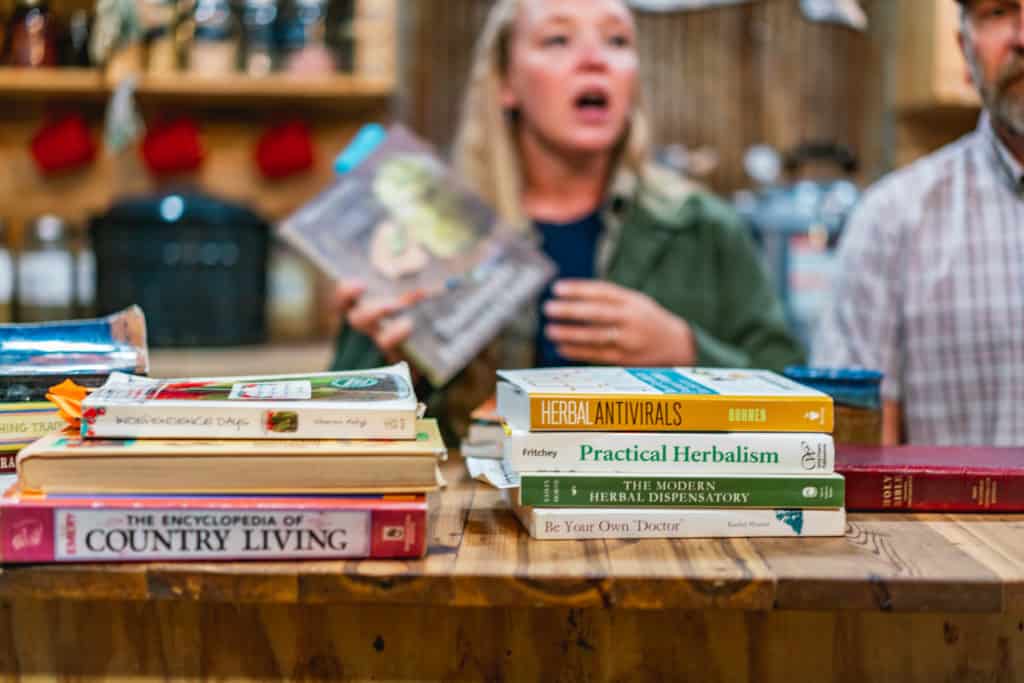
Step #1 – Start Where You Are With What You Have
Working with what you have and starting new habits and patterns helps with the homesteading mindset and is a great place to start.
No matter what is in your bank account or how big or small your space is, you want to start educating yourself about the skills needed to manage a thriving homestead. The best homesteading books for the novice or pro will teach you so much! Keep it simple!

Step # 2 – Start With One New Skill Set at a Time
If you want to grow your own food, start with the space you have. We used container gardening as our vegetable garden in a small apartment with a balcony. Pots of all sizes were everywhere we could get something to grow.
The Greenstalk Vertical Planter would have been wonderful then, but we made do with what we had.
If you aren’t ready to begin growing as many vegetables as you can find space for, you can start smaller and learn how to grow and use medicinal plants to optimize your health.
If you have more space like a backyard or acreage, start there. Learn what grows in your zone, planting dates and schedules, how to read seed packets, when to pot up seedlings, and companion planting. This knowledge will shorten the learning curve when you are ready to start digging in the soil.
You will be overwhelmed if you think about raising livestock, starting a homestead business, learning how to cut, bale and stack hay, split and stack firewood and so on while learning gardening techniques. Choose to learn basic homesteading skills one at a time to set yourself up for success.
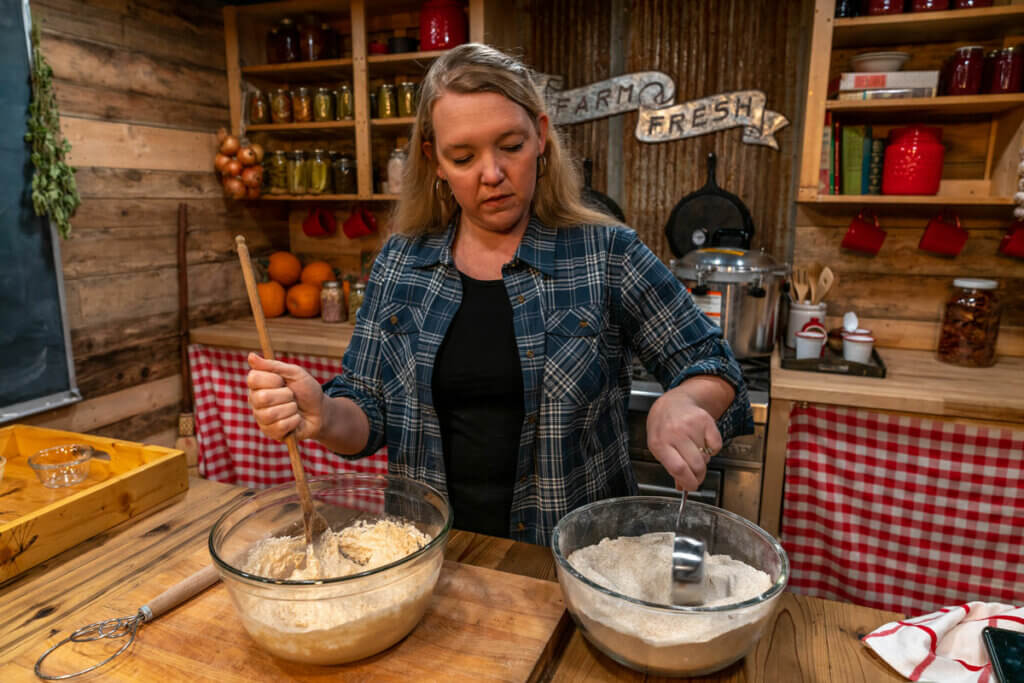
Step # 3 – Get Started in the Kitchen
Foundational skills for increasing self-sufficiency can start right in the kitchen. Your kitchen skill sets can help you save money at the grocery store and still eat well on a budget.
Begin by learning how to meal plan and cook from scratch using basic tools like cast iron cookware or enameled cast iron cookware. These skills are so much more enjoyable and affordable when you are set up with pantry staples you should always have on hand.
It’s a good idea to become proficient in food preservation before harvest time comes. Practice on foods you can forage or find on sale at the grocery store. This way you can practice without the pressure of ruining food you worked so hard to grow.
Learn how to find food preservation tools on a budget, and then choose one preservation method at a time to build your skills.
- Preservation 101: Introduction to Canning
- Preservation 101: Intro to Fermentation
- Preservation 101: Dehydrating Food
- Preservation 101: Root Cellaring
- Water Glassing Eggs – Preserving Eggs for Long-Term Storage
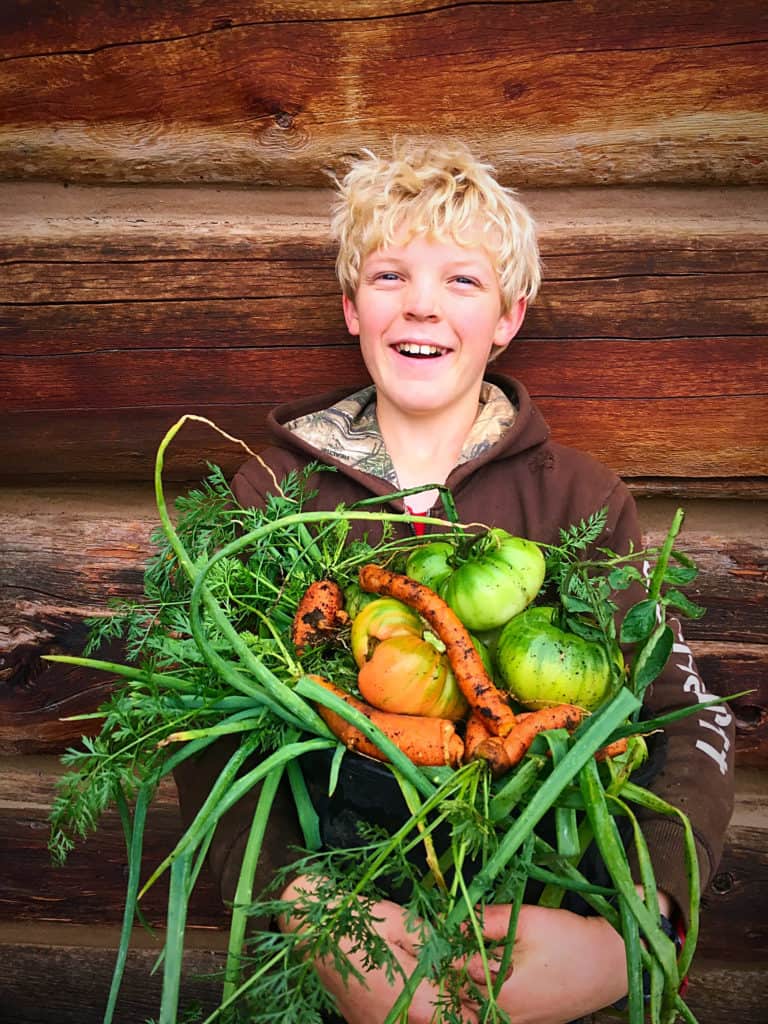
Step # 4 – Shopping Outside the Grocery Store
Your cooking-from-scratch skills will improve your health by buying and using fresh, organic foods from local farmers’ markets. Ask your local health food store manager if there is a co-op and how to join it to increase your food sources.
Buying foods in bulk can bring big savings in the long run and help to fill your pantry shelves and freezer. The initial purchase will be more expensive, but the amount of food you can put up is less expensive by volume.
Figure out what you use and eat and buy accordingly. Especially when it’s foods such as wheat berries for making bread and bushels of seasonal fruits and veggies. The savings will be noticeable.

Step #5 – Make Your Own Cleaning Supplies
Learn how to make your household cleaning supplies. It saves you money, and you won’t be bombarded with toxins from some store-bought cleaners. Making your own will be significantly cheaper than store-bought green cleaners. Homemade glass cleaner, baking soda bathroom cleaner, washing soda, and cream of tartar stain remover are good examples.
Vinegar will clean most surfaces, and adding baking soda or dish soap takes it to the next level of cleaning. A gallon of vinegar is inexpensive and goes a long way. Purchase a few spray bottles, and you’re on your way to a cleaner environment with fewer chemicals!
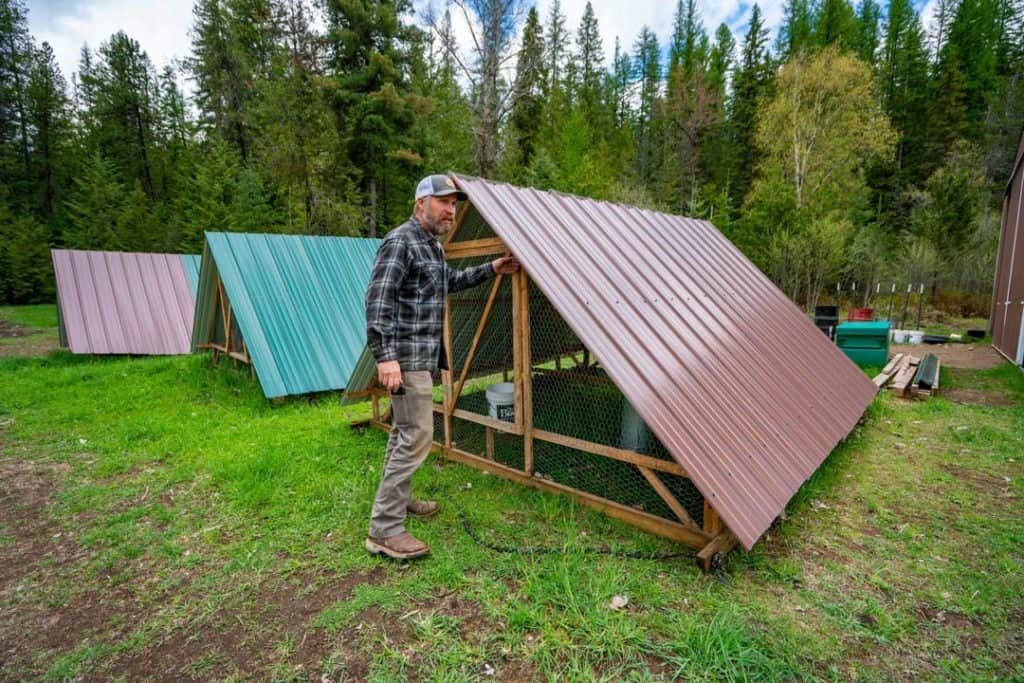
Step # 6 – Building Skills
Basic carpentry is a valuable skill tool to learn. You can start by fixing small things around the house, learning how things work and doing minor repairs. This skill builds on itself. It doesn’t need to be a large project; like I said before, keep it simple!
Start with something small like a wooden box for gardening or a small fenced-in area to plant a garden.
There’s so much information out there now via the internet and how-to books to learn basic carpentry skills. If you have neighbors who also homestead, they can be a good resource giving you hands-on experience.
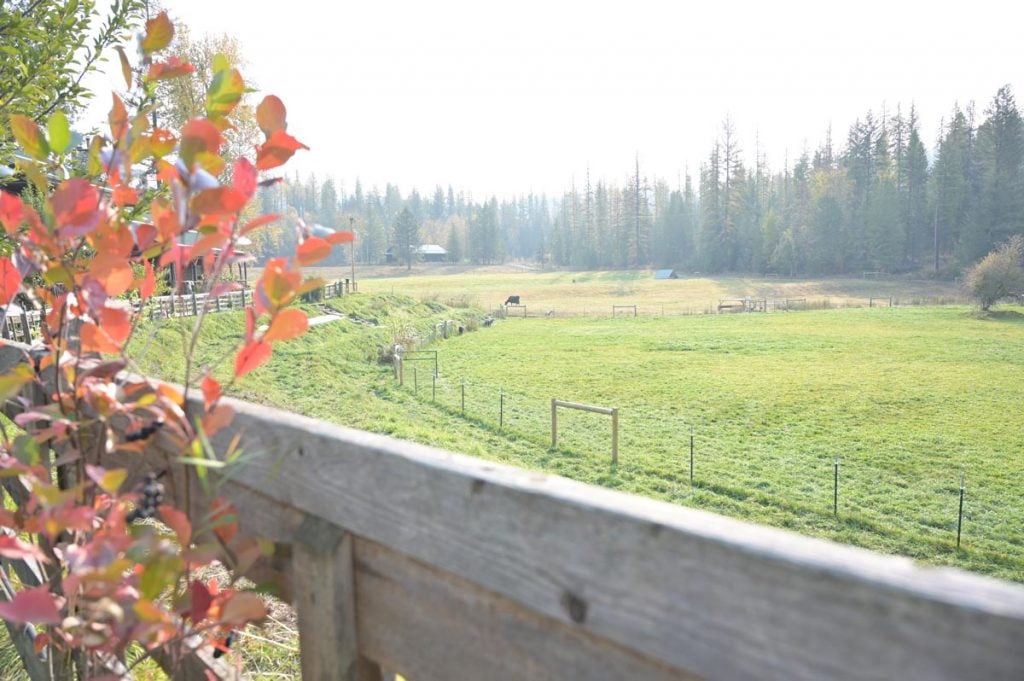
Step # 7 – Auditing – Not the IRS
Counting the cost is auditing, and the benefits it brings to your household or homestead is worth the effort. Keeping good records of what you are doing, such as the amount of time, energy and resources you are investing in and the yield you’re gaining from it.
Planning is essential so you don’t waste resources or money when investing in a new project. When gardening, are quality gardening tools worth the cost, or do I need to extend the growing season by using a hoop house? Ask yourself if you can invest wisely with what you have.
Raising chickens for eggs in some areas can be less cost-effective. Yet, weighing the health benefits of fresh farm eggs and how chickens can be used on the homestead in other ways makes it worth it.
Keep good records, honestly audit your progress and make changes if needed. If you don’t know how much it costs to produce your product, you won’t know if you’re actually making a profit homesteading or losing money.

Step # 8 – Building Community
Get to know your neighbors and others in your community, endeavoring to use their skills to build a homestead. As we said earlier, it could be urban or rural, and more than likely, you will find like-minded people around you.
Helping and learning from each other with building projects, sharing a community garden, and having canning parties with bushels of fruits or vegetables, adds to everybody’s pantry shelves. It is fun and a great way to learn or share new skills.
Bartering is another wonderful way to add to your homesteading skills. You can barter labor, such as: helping a neighbor bale and stack hay in exchange for a cord of firewood. Building skills on your homestead brings opportunities to barter everything from pruning fruit trees to basic sewing projects.
Pick Your Skill of Choice and Get Started
Audit, plan wisely, and count the cost of the most important homesteading skills you want to learn and get started! Use the resources around you, learn basic skills, gain the necessary knowledge, and give it a good, solid try.
Sometimes you’ll fail but use that trial to learn and give it another go. You will build your skills over time. The adventure of homesteading, big or small, urban or rural, is well worth it!
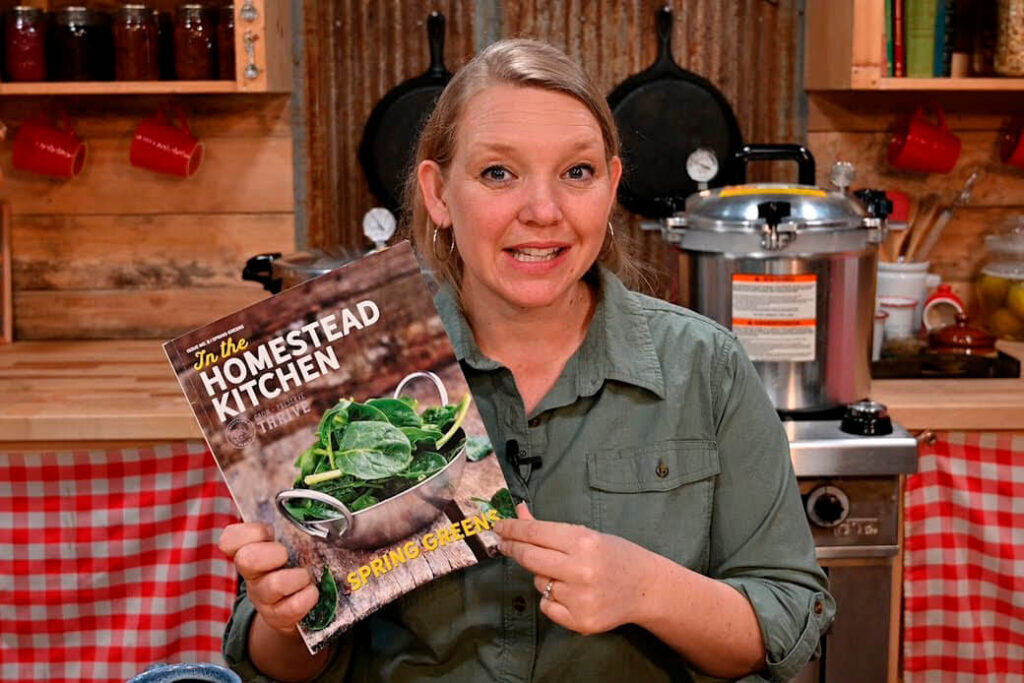
The Homestead Kitchen
If you want to build your skills to become a successful homesteader, consider joining The Homestead Kitchen Membership. Your membership will educate you in mastering the skills of creating and running an efficient, well-run homestead.
You will be taught master skills in canning, bread baking, dairy making and herbalism. Learning the safe and effective methods of food preservation and using herbs for cooking and improved health.
Sign up today and gain more skills along with the homesteading support from talented and knowledgeable community members and moderators, problem-solving all of your homestead and kitchen-related challenges.











